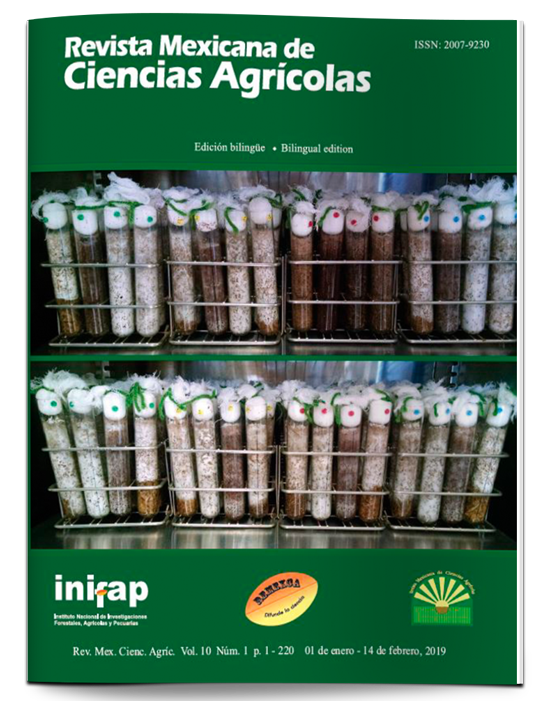Resilience and sustainability of traditional agroecosystems of Mexico: Totonacapan
DOI:
https://doi.org/10.29312/remexca.v10i1.1789Keywords:
agricultural production, conservation, ethno-resources.Abstract
In Mexico, traditional agricultural technology, resulting from the thousand-year accumulation of valuable experiences pertinent to the management, exploitation and selection under domestication of a wide range of ethno-resources, continues to be expressed in a wide area. However, due to various negative aspects of the acculturation process, its biological and cultural foundations are at serious risk. Considering the agroecosystem, the integral study unit leading to the understanding of the interrelations involved in the dynamics of its physical, biological and cultural components and having as objective, contribute to the understanding of the ecological and cultural dynamics evidenced in traditional agroecosystems of the Totonacapan. Through experiences derived from more than three decades of work in the region, some distinctive features of these agricultural production systems are described and analyzed, emphasizing the milpa and the mountain as spaces in which knowledge and attitudes related to the production and transmission of knowledge are generated and transmitted. perception, management, use and conservation of ethno-resources inherent to them. Quantitative information linked to the dynamics of this type of agricultural production systems is provided. The applied methods were based on the framework for the evaluation of natural resource management systems incorporating sustainability indicators (MESMIS), life cycle assessment (LCA), ethnobotanical exploration, as well as participatory observation. Based on the definition and evaluation of 15 indexes relevant to their resilience, a transdisciplinary work model is proposed, leading to the measurement of the degree of sustainability evidenced by them. The results indicate that the greater the biocultural legacy transmitted by their ancestors and the attachment of peasant families to it, the greater the ecological and cultural resilience of their agroecosystems and, consequently, the sustainability evidenced by them.
Downloads
Downloads
Published
How to Cite
Issue
Section
License
The authors who publish in Revista Mexicana de Ciencias Agrícolas accept the following conditions:
In accordance with copyright laws, Revista Mexicana de Ciencias Agrícolas recognizes and respects the authors’ moral right and ownership of property rights which will be transferred to the journal for dissemination in open access. Invariably, all the authors have to sign a letter of transfer of property rights and of originality of the article to Instituto Nacional de Investigaciones Forestales, Agrícolas y Pecuarias (INIFAP) [National Institute of Forestry, Agricultural and Livestock Research]. The author(s) must pay a fee for the reception of articles before proceeding to editorial review.
All the texts published by Revista Mexicana de Ciencias Agrícolas —with no exception— are distributed under a Creative Commons License Attribution-NonCommercial 4.0 International (CC BY-NC 4.0), which allows third parties to use the publication as long as the work’s authorship and its first publication in this journal are mentioned.
The author(s) can enter into independent and additional contractual agreements for the nonexclusive distribution of the version of the article published in Revista Mexicana de Ciencias Agrícolas (for example include it into an institutional repository or publish it in a book) as long as it is clearly and explicitly indicated that the work was published for the first time in Revista Mexicana de Ciencias Agrícolas.
For all the above, the authors shall send the Letter-transfer of Property Rights for the first publication duly filled in and signed by the author(s). This form must be sent as a PDF file to: revista_atm@yahoo.com.mx; cienciasagricola@inifap.gob.mx; remexca2017@gmail.
This work is licensed under a Creative Commons Attribution-Noncommercial 4.0 International license.



